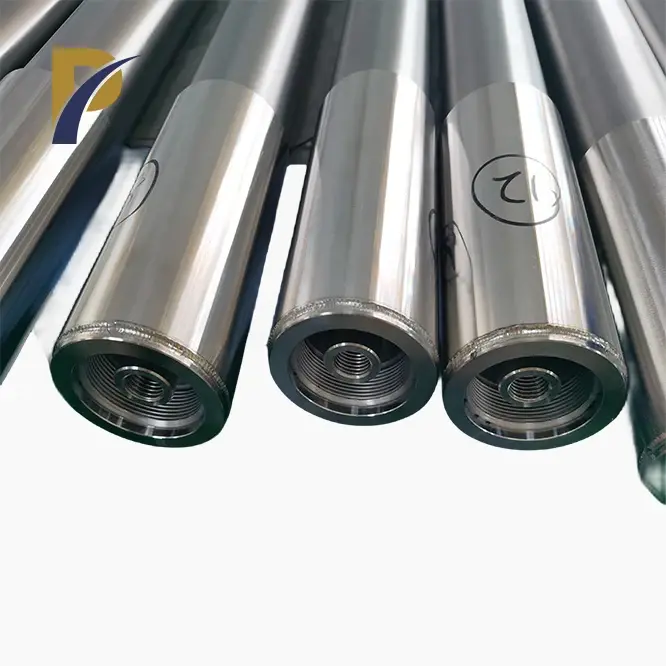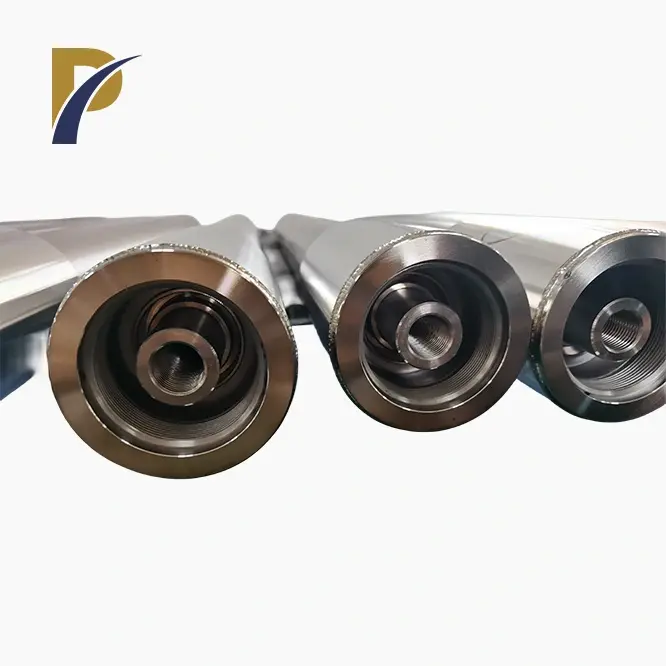Molybdenum electrodes play a crucial role in various industrial applications, offering unique properties that make them indispensable in specific scenarios. Understanding when and how to utilize these electrodes can significantly enhance manufacturing processes and product quality. In this comprehensive guide, we'll explore the optimal conditions for employing molybdenum electrodes, their benefits, and the industries that rely on their exceptional characteristics.
The Unique Properties of Molybdenum Electrodes
Molybdenum electrodes stand out due to their remarkable attributes, which make them suitable for a wide range of applications. Let's delve into the properties that set these electrodes apart:
High Melting Point and Thermal Stability
One of the most remarkable highlights of molybdenum electrodes is their exceptionally high liquefying point, which surpasses 2600°C (4712°F). This trademark permits them to keep up with underlying respectability and execution in outrageous temperature conditions, making them ideal for high-temperature applications where different materials would fall flat.
Excellent Electrical Conductivity
Molybdenum electrodes boast superior electrical conductivity, a property that is crucial in many electrical and electronic applications. This attribute ensures efficient energy transfer and minimal resistive losses, contributing to improved overall system performance and energy efficiency.
Resistance to Corrosion and Chemical Attack
Another valuable property of molybdenum electrodes is their remarkable resistance to corrosion and chemical attack. This resilience makes them suitable for use in harsh chemical environments and applications involving aggressive substances, where other electrode materials might degrade rapidly.
Optimal Conditions for Using Molybdenum Electrodes
To maximize the benefits of molybdenum electrodes, it's essential to understand the conditions under which they perform best. Here are some scenarios where these electrodes excel:
High-Temperature Processing
Molybdenum electrodes excel in high-temperature processing due to their exceptional heat resistance. They are indispensable in industries like glass manufacturing, where temperatures frequently exceed 1000°C (1832°F). Their ability to endure such intense heat without losing structural integrity or electrical conductivity is crucial for maintaining reliable performance. This resilience ensures that molybdenum electrodes consistently deliver accurate and stable results, even under the most demanding conditions. As a result, they are a preferred choice for processes requiring both durability and precision at elevated temperatures.
Vacuum Metallurgy
In vacuum metallurgy, molybdenum electrodes are exceptionally esteemed for their exhibition. The mix of high temperatures and low-pressure conditions in vacuum heaters requests materials that oppose vanishing and hold their properties. Molybdenum succeeds in such manner because of its low vapor pressure at raised temperatures, which keeps it from dissipating under outrageous circumstances. In vacuum metallurgy processes, molybdenum electrodes provide stable and dependable performance because of this property. Their solidness and dependability go with them a top decision for keeping up with accuracy and proficiency in these requesting applications.
Corrosive Environments
In corrosive environments, molybdenum electrodes stand out for their remarkable resistance to chemical attack. This makes them highly effective in electrochemical processes that involve harsh electrolytes or in settings where exposure to corrosive gases is common. Molybdenum's durability under these aggressive conditions ensures that the electrodes maintain their performance and structural integrity over time. This resilience not only extends the lifespan of the electrodes but also reduces the need for frequent maintenance, making molybdenum an ideal choice for demanding applications where reliability is crucial.
 |
 |
Industries Benefiting from Molybdenum Electrodes
The unique properties of molybdenum electrodes make them indispensable across various industries. Let's explore some sectors where these electrodes play a crucial role:
Glass Manufacturing
The glass industry heavily relies on molybdenum electrodes for their ability to withstand the extreme temperatures involved in glass melting processes. These electrodes are used in electric melting furnaces, where they help maintain consistent heat distribution and ensure the production of high-quality glass products. The longevity and stability of molybdenum electrodes in this high-temperature environment contribute to improved efficiency and reduced downtime in glass manufacturing operations.
Aerospace and Defense
In the aviation and defense areas, molybdenum electrodes find applications in specific welding processes and in the creation of elite execution amalgams. Their capacity to keep up with primary honesty under outrageous circumstances makes them significant in the assembling of parts for airplane motors, rocket spouts, and other high-stress applications. The utilization of molybdenum electrodes in these businesses adds to the development of more strong and dependable aviation and defense equipment.
Electronics and Semiconductor Industry
The electronics and semiconductor industry benefits from the utilization of molybdenum electrodes in different cycles, including the development of high-purity silicon for semiconductor gadgets. Molybdenum is an excellent material for electrodes used in crystal growing furnaces and other semiconductor manufacturing equipment due to its excellent electrical conductivity and resistance to contamination. This utilization of molybdenum electrodes guarantees the creation of great electronic parts with reliable execution qualities.
Conclusion
In conclusion, molybdenum electrodes are valuable in a wide range of industrial applications due to their unique combination of properties. Their high melting point, astounding electrical conductivity, and protection from erosion and compound assault go with them the terminal material of decision in high-temperature processing, vacuum metallurgy, and corrosive environments. Enterprises, for example, glass manufacturing, aviation and defense, and electronics continue on depending on molybdenum electrodes to work on their cycles and item quality.
Contact Us
For more information about molybdenum electrodes and how they can benefit your specific application, please don't hesitate to contact us at info@peakrisemetal.com. Our team of experts at Shaanxi Peakrise Metal Co., Ltd. is ready to assist you in finding the optimal electrode solution for your needs.
References
Johnson, A. R. (2018). "Advanced Materials in High-Temperature Processing: The Role of Molybdenum Electrodes." Journal of Industrial Metallurgy, 42(3), 215-229.
Smith, L. K., & Brown, T. E. (2019). "Electrochemical Applications of Refractory Metals in Corrosive Environments." Corrosion Science Quarterly, 55(2), 78-92.
Zhang, Y., et al. (2020). "Molybdenum Electrodes in Glass Manufacturing: A Comprehensive Review." Glass Technology: European Journal of Glass Science and Technology Part A, 61(4), 141-156.
Patel, R. N., & Garcia, M. S. (2021). "Advancements in Vacuum Metallurgy: The Impact of Molybdenum Electrode Technology." Vacuum, 183, 109803.
Davidson, H. W., & Thompson, K. L. (2022). "Molybdenum in Aerospace: From Electrodes to Alloys." Aerospace Materials and Technology, 37(1), 45-59.
Lee, J. H., et al. (2023). "High-Purity Silicon Production: The Critical Role of Molybdenum Electrodes in Semiconductor Manufacturing." Journal of Electronic Materials, 52(5), 2789-2801.
